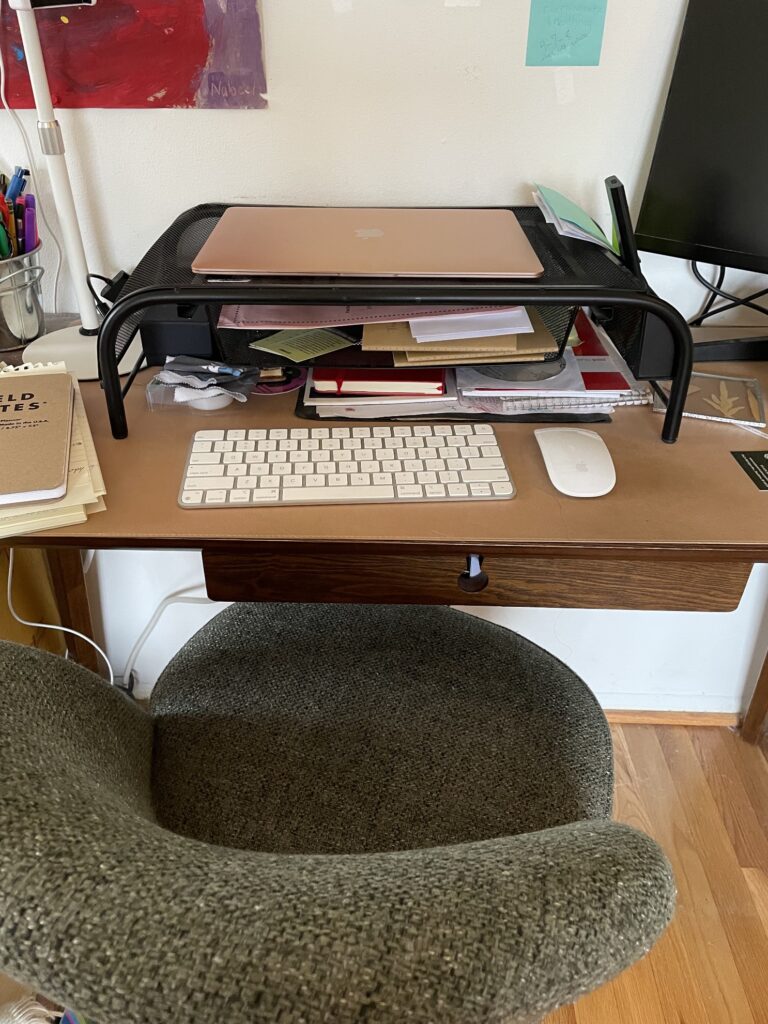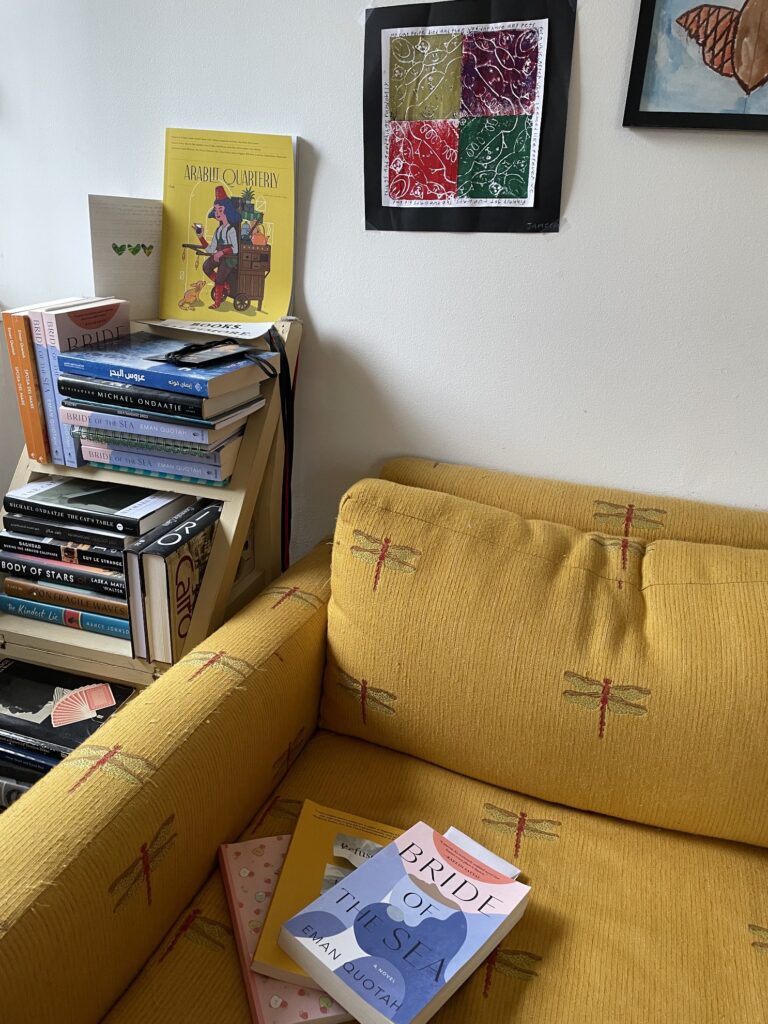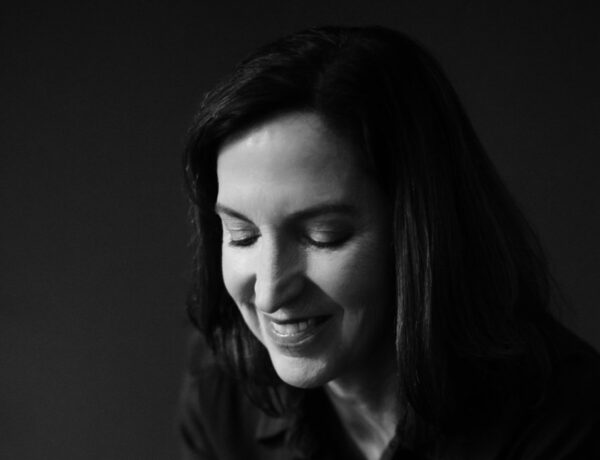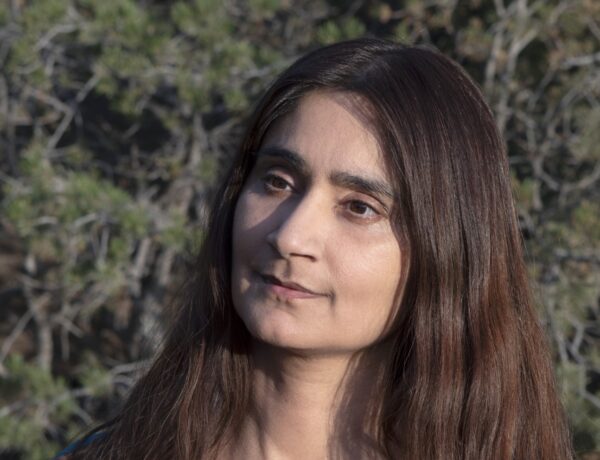Eman Quotah’s debut novel, Bride of the Sea, won the Arab American Book Award for fiction in 2022. She grew up in Jidda, Saudi Arabia, and Cleveland Heights, Ohio.
Her writing has appeared in The Washington Post, USA Today, Necessary Fiction, Witness, The Rumpus, Jellyfish Review, Kweli, Literary Hub, Electric Literature, ArabLit Quarterly, The Markaz Review and other publications.
When she’s not writing fiction or essays, Eman is a communications consultant and ghost writer for nonprofit and business leaders. She lives with her family near Washington, D.C.
Looking for inspiration to help you achieve your writing goals? Subscribe to our newsletter for exclusive insights into the routines, habits, and techniques of some of the most celebrated authors in history.
Hi Eman, great to have you here with us today! Congratulations on winning the Arab American Book Award for your debut novel, Bride of the Sea! Can you tell us more about the inspiration behind this story?
Thank you for having me! Bride of the Sea was inspired by the true story of a family friend whose daughter was abducted as a child by his ex-wife. He didn’t see her again until she was an adult. Of course, Bride is about a fictional family, so that two-sentence gist is pretty much all the novel and IRL stories have in common.
Many years ago, when our family friend was reunited with his daughter, I started wondering what it would be like, after years apart, to suddenly be reunited with your parents and (possibly) his country and culture and an entire family you never knew.
So, I started writing about the reunion, and after years of stopping and starting and putting the book aside to write another manuscript, I came back to it with the idea of also exploring the dissolution of the marriage – and what happens long after the reunion. Because even after key experiences shake up our lives, we keep on living.
Bride of the Sea tackles complex issues of immigration, culture, and family. How did your own experiences growing up in Jidda, Saudi Arabia, and Cleveland Heights, Ohio, influence your writing?
Bride is both not at all a personal book, because it’s about an experience I’ve never had: family abduction. And it’s very personal, because I set it in the two places where I grew up, during the time in which I grew up. For me as a fiction-writer, it’s good to have a combination of “writing what I know” and “writing what I don’t know” in one project. Knowing both settings pretty well grounded me and helped me add specificity and richness to the story. Writing about something new made me stretch my imagination and my empathy.
But I don’t think I realized how much I had in common with the main character, Hanadi, until readers started asking me about our connection. When I was eight, my family moved back to Jeddah after we’d been in the U.S. for six or seven years. The culture shock and big family embrace and wondering how she fits in that Hanadi goes through are all things I went through, too. But I was a child, whereas she’s a young adult, so the impact of those experiences is not the same. Also, I was strongly connected to both my parents and cultures all through my childhood, unlike Hanadi. And finally, I’m multiracial, and she’s not. She looks like she fits in in Saudi, and stands out in the U.S., whereas it’s the opposite for me.
The story is told from multiple perspectives, weaving together the lives of various characters. How did you approach writing from different points of view, and was there one character in particular who was more challenging to write than others?
I loved writing from different points of view! And in fact, at one point there were seven or eight point of view characters in the book, each with their own chapters. Because Saudi Arabia and other Arab and Muslim places are so often flattened in the non-Arab, non-Muslim imagination, I wanted to give voices to many different interesting and unique characters, people who were like people I grew up knowing.
Eventually I decided that to focus on the story, I needed to stick with Hanadi and her parents’ points of view. Hanadi and Muneer were both pieces of cake to write. I love writing father-daughter relationships! But Saeedah was tough. I wanted to capture the nuances of her choices without giving her a pass because my research on family abduction told me that it’s traumatizing for children, and I didn’t want to minimize that. I read these really powerful personal narratives by former abductees who were grappling with constantly having moved as kids, being lied to, not knowing they’d been abducted until they were older, having to come to terms with their childhoods being not what they thought they were.
Obviously, there’s no one experience of family abduction. I had to figure out how to tell this one fictional family’s story, and Saeedah’s actions are the crux of what shapes them. I wanted readers to at least try to understand why Hanadi and Muneer would be angry at Saeedah, and why Hanadi would have really difficult and conflicting emotions about her mother.
I knew I would have some readers who would come into the story knowing only U.S. culture’s default way of viewing Arab women, which is to see them as always the victim, and the default way of viewing Arab culture, which is that it stifles women in every way. I knew other readers would, like me, have a more complicated understanding. In any case, I felt Saeedah had to be a bit of an enigma. I don’t think every human action is explainable.
Do you struggle to stay focused while writing? You’re not alone! That’s why Famous Writing Routines recommends Freedom – the ultimate app and website blocker for Mac, Windows, Android, iOS, and Chrome. With over 2.5 million users, Freedom helps writers stay on task and avoid distractions. Get started for free today and reclaim your productivity!
The themes of loss and healing are central to the story. Can you talk more about how you approached these themes in your writing, and what you hope readers take away from the novel?
You know, I’m not sure that I approached those themes directly while I was writing. Some experiences change us forever, but also they don’t? I love books that don’t give all the answers. I would love for readers to consider my novel next to a book like A Girl Is a Body of Water, by Jennifer Nansubuga Makumbi, in which a girl searches for her mother and—I don’t want to spoil it, but it’s not a neat ending!
In addition to being a writer, you also work as a communications consultant and ghost writer for nonprofit and business leaders. How does this work inform or influence your creative writing?
Ha! For a long time it felt like it got in the way of my creative writing, but actually it supported me so I could write. And I really do love working with folks who have an important message and helping them get it out in the world. In both comms and creative writing, I think the mantra should be to “tell the story only you can tell.”
Can you tell us about your writing routine? What does a typical day look like for you?
My routine has changed a lot over the years depending on what creative project I’m working on and what stage that is in (drafting versus revising versus submitting and so on), what my day job situation is, and the particular demands of parenting at that moment. For years I wrote in the evening, while feeling kind of burnt out from the day, which wasn’t ideal, of course. For a while I had a long subway commute, so I worked on my novel on the way to work on my phone.
For four or five years, I had an annual super intense work project over the summer, so I knew I’d get no creative writing done in August and I’d prioritize taking paid time off to write in September. Other times and at various employers, I worked out an arrangement where I could be part-time for a few months to focus on moving forward in a draft or finishing a draft or revising or whatever goal I had at the time.
Right now, I’m pretty lucky to be a solopreneur and be able to dictate my own schedule. I prefer to work on creative projects for a few hours in the morning, while my brain is fresh, and do client work and kid shuttling later in the day.
The most important thing for writers figuring out their routines and writing practices to know, I think, is that the routine that is right for you now may not be the right one next month or next year. That’s OK. Life changes, and writing can always be there for us.
If you could have a conversation with any author throughout history about their writing routine and creative process, who would that person be?
It’s funny, I used to go to readings and think it was weird when people asked the author about their process, because the process feels so personal to me. But then I heard Alice McDermott talk about how she always edits yesterday’s pages before writing new ones, and I felt seen. And now I realize that although routine and process are very personal, they’re not set in stone and we can learn from other people to find what works for us at any given point. That’s why I’ve taught novel revision classes, to help people figure out how to get to the finish line through a combination of craft techniques and understanding their own process.
Anyway, to actually answer your question, I’d like to ask Jonathan Franzen if he still wears a blindfold while he writes, and I’d really like to know what Kiran Desai has been writing lately because I loved The Inheritance of Loss and I’ve been patiently waiting for a follow-up. And because Michael Ondaatje wrote some of my favorite books and is one of my literary heroes, I’d love to chat with him about walking that line between truth and fiction.
I’d love to know about the books you’re reading at the moment. What have been some of your favorite recent reads?
I’m reading After Lives by Abdulrazak Gurnah, only the second book I’ve read by him. I wish I’d been introduced to his books years ago. I think his work would have really influenced me—not that it can’t now!
I just read Bitter Orange Tree by Omani novelist Jokha Alharthi, in a wonderful translation by Marilyn Booth. It’s about an Omani woman studying in Britain and retelling family history in a way that makes us rethink what family history is and means. Last year I had the honor of writing about Kuwaiti novelist Mai Al-Nakib’s family saga An Unlasting Home. I’ve loved seeing how these two authors from the Arabian Peninsula write about similar themes as I’m concerned with and follow historical threads similar to ones I’m obsessed with.
What does your current writing workspace look like?
I have a little desk in the corner of my bedroom, with my kids’ art above it on the wall. But I like to move around sometimes, so I also like to write on my dragonfly couch.


Affiliate disclaimer: Some links on this website are affiliate links. We may earn a small commission if you make a purchase through these links, but only promote products we truly believe in. We disclose affiliate links and give honest reviews.



No Comments